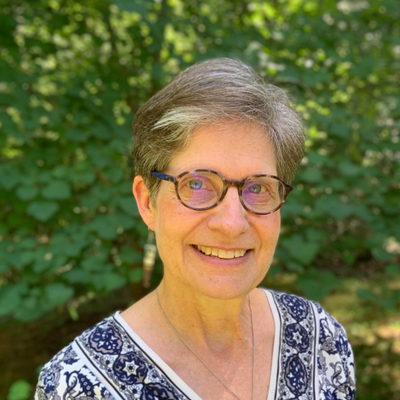“So many amazing things can happen if I speak up,” says Janna Rodriguez, who describes herself as an early childhood entrepreneur in Freeport, New York. “When we focus on empowering each other and supporting all child care providers to understand their worth, we can create an accessible, affordable, quality child care system that really supports all families and our economy.” That’s the audacious goal of Home Grown’s Provider Policy Work Group, made up of 14 dynamic and determined child care providers, including Rodriguez, who joined forces starting in 2022 to advocate for legislative and policy changes in the child care sphere at both the national and local level.
These provider leaders, with well over a century of experience between them, have brought their expertise in child care into face-to-face meetings with policymakers and to the floor of the House where laws that impact home-based providers and the families who depend on them are passed. The fine print of policy can be a dense thicket where a small change in word choice can have a big impact on providers’ livelihoods and opportunities for children and families. So, just as they do with the children at home, they are using a strategy of patient persistence to drive change.
The No. 1 issue the Policy Work Group is currently tackling is wage parity for home-based providers. Across the country, home-based child care programs are closing their doors because providers simply can’t afford to stay open. Chrissie Davis, who’s been caring for children for 22 years, chairs the Family Child Care Association of Maine, and sits on the advisory council for Maine’s Children’s Cabinet, says what motivates her are the dozens of phone calls she gets from parents who need child care but can’t find it because so many providers couldn’t afford to stay open.
“We’re doing the best we can for very little pay and keeping the rest of America working,” says Davis. “I work 10 and a half hour days caring for kids. I start at 6 in the morning, do meetings during nap time and after the last one leaves at 4:30 in the afternoon, and then there’s additional trainings. During the pandemic, I made $10.93 an hour.” Davis wants to change that, not just for herself but for all home-based providers.
Home Grown’s Provider Policy Work Group, facilitated by policy consultant Mary Beth Testa, Community Partnerships and Learning Manager Joyceline Felix, and Director of Policy and Strategy Alexandra R. Patterson, gathers monthly to share updates on policy barriers from their individual states, brainstorm actionable solutions, strategize how to approach legislators, and support one another’s efforts to move the policy needle toward progress on key home-based child care issues. Their meetings also make time to mark and celebrate milestones and first steps toward progress, like bills recently introduced to expand and reform the Child and Adult Care Food Program.
“Investing in the early childhood industry is investing in our future. We’re raising the next politicians. We’re raising the next president. These people are in our hands, so why not support us and give them the best start they can have?”
Other issues on the Policy Work Group’s agenda include increasing supports for home-based providers that provide access to and incentives for training and professional development; ensuring that child care policies are equitable and inclusive for all home-based providers; and creating professional benefit programs and supports for home-based providers such as substitute pools, health insurance, and retirement plans. Sandi Stone, a former kindergarten teacher and FFN (family, friend, and neighbor) caregiver in Western North Carolina, which has seen numerous child care closures since October, notes that home-based child care offers working parents an alternative, but only if it is supported and subsidized by public funding. “I’m glad that we were able to take care of our grandchildren so that their mom can go to work, but not every family can do that. I worry about their children. For those with no cushion, this is a crisis, and as a culture, we need to fix it.”
“Basically we’re saying invest in child care,” summarizes Sheryl Hutzenbiler, a Policy Work Group changemaker from Billings, Montana. “Investing in the early childhood industry is investing in our future. We’re raising the next politicians. We’re raising the next president. These people are in our hands, so why not support us and give them the best start they can have?”
Home Grown thanks all of the members of our first cohort of the Provider Policy Work Group 2022-2023.
- Miren Algorri, California
- Elianna (Ellie) Campos, California
- Laura Roush, Colorado
- Janice Souder, Georgia
- Unique Clay, Georgia
- Shiela O. Weatherman, Louisiana
- Chrissie Davis, Maine
- Maritza Manrique, Massachusetts
- Sheryl Hutzenbiler, Montana
- Kayanna Jackson, New Jersey
- Erika Sanchez, New Jersey
- Janna Rodriguez, New York
- Danielle Caldwell, North Carolina
- Angelique Speight-Marshall, Washington, D.C.
The second cohort of the Provider Policy Work Group 2023-2024 was welcomed in August and is hard at work changing hearts and minds of legislators across the nation.
- Rachel Bymun, California
- Latavia Howard, Illinois
- Amber Bilby, Colorado
- Myra Abdus-Saboor, Georgia
- Shannon Hampson, Nebraska
- Sandra Stone, North Carolina
- Chrissie Davis, Maine
- Martha Corona, California
- Maritza Manrique, Massachusetts
- Sheryl Hutzenbiler, Montana
- Erika Sanchez, New Jersey
- Angelique Marshall, Washington, D.C.
- Jessica Courtney, Pennsylvania
- Janna Rodriguez, New York




